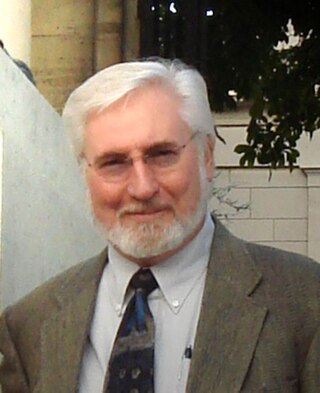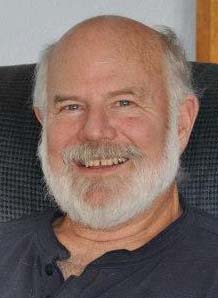Related Research Articles

Herpetology is a branch of zoology concerned with the study of amphibians and reptiles. Birds, which are cladistically included within Reptilia, are traditionally excluded here; the separate scientific study of birds is the subject of ornithology.
Eric Rodger Pianka was an American herpetologist and evolutionary ecologist.
David Burton Wake was an American herpetologist. He was professor of integrative biology and Director and curator of herpetology of the Museum of Vertebrate Zoology at the University of California, Berkeley. Wake is known for his work on the biology and evolution of salamanders as well as general issues of vertebrate evolutionary biology. He has served as president of the Society for the Study of Evolution, the American Society of Naturalists, and American Society of Zoologists. He was a member of the American Association for the Advancement of Science, the Linnean Society of London, the American Academy of Arts and Sciences, the American Philosophical Society, and in 1998 was elected into the National Academy of Sciences. He was awarded the 2006 Leidy Award from the Academy of Natural Sciences of Philadelphia.
Ecophysiology, environmental physiology or physiological ecology is a biological discipline that studies the response of an organism's physiology to environmental conditions. It is closely related to comparative physiology and evolutionary physiology. Ernst Haeckel's coinage bionomy is sometimes employed as a synonym.
Michael T. Ghiselin is an American biologist and philosopher as well as historian of biology, formerly at the California Academy of Sciences.
Comparative physiology is a subdiscipline of physiology that studies and exploits the diversity of functional characteristics of various kinds of organisms. It is closely related to evolutionary physiology and environmental physiology. Many universities offer undergraduate courses that cover comparative aspects of animal physiology. According to Clifford Ladd Prosser, "Comparative Physiology is not so much a defined discipline as a viewpoint, a philosophy."

Evolutionary physiology is the study of the biological evolution of physiological structures and processes; that is, the manner in which the functional characteristics of individuals in a population of organisms have responded to natural selection across multiple generations during the history of the population. It is a sub-discipline of both physiology and evolutionary biology. Practitioners in the field come from a variety of backgrounds, including physiology, evolutionary biology, ecology, and genetics.
Pere Alberch Vie was a Spanish naturalist, biologist and embryologist. He was a professor at Harvard University from 1980 to 1989, and director of the Museo Nacional de Ciencias Naturales, Madrid. He studied in the United States, earning a bachelor's degree from the University of Kansas (1976) and a PhD from the University of California, Berkeley (1980).

Theodore Holmes Bullock is one of the founding fathers of neuroethology. During a career spanning nearly seven decades, this American academic was esteemed both as a pioneering and influential neuroscientist, examining the physiology and evolution of the nervous system across organizational levels, and as a champion of the comparative approach, studying species from nearly all major animal groups—coelenterates, annelids, arthropods, echinoderms, molluscs, and chordates.
Paul H. Harvey is a British evolutionary biologist. He is Professor of Zoology and was head of the zoology department at the University of Oxford from 1998 to 2011 and Secretary of the Zoological Society of London from 2000 to 2011, holding these posts in conjunction with a professorial fellowship at Jesus College, Oxford.
Theodore Garland Jr. is a biologist specializing in evolutionary physiology at the University of California, Riverside.
The Daniel Giraud Elliot Medal is awarded by the U.S. National Academy of Sciences "for meritorious work in zoology or paleontology study published in a three- to five-year period." Named after Daniel Giraud Elliot, it was first awarded in 1917.

C. Richard (Dick) Tracy is an American biologist, a professor of biology at the University of Nevada, Reno.
Tyson Royal Roberts is an American ichthyologist. He has been described as "the world's foremost authority on Regalecus".
Marvalee Hendricks Wake is an American zoologist and professor at the University of California, Berkeley, known for her research in the biology of caecilians and vertebrate development and evolution. A 1988 Guggenheim Fellow, she has served as president of the American Institute of Biological Sciences, the American Society of Ichthyologists and Herpetologists, Society for Integrative and Comparative Biology, International Union of Biological Sciences, and the International Society of Vertebrate Morphology. She is a fellow of the American Association for the Advancement of Science and the California Academy of Sciences, and is a member of the American Academy of Arts and Sciences.
Jonathan B. Losos is an American evolutionary biologist and Herpetologist.

Stevan James Arnold is an American evolutionary biologist. He is Professor Emeritus of Integrative Biology and was Curator of Amphibians and Reptiles at Oregon State University, Corvallis until his retirement. He has served as president of the Society for the Study of Evolution and the American Society of Naturalists.
Albert Farrell Bennett is an American zoologist, physiologist, evolutionary biologist, author, and academic. He is Dean Emeritus of the School of Biological Sciences at University of California, Irvine.
David C. Cannatella is an American herpetologist, systematist, zoologist, and professor of integrative biology at the University of Texas at Austin.
Warren P. Porter is a biophysical ecologist, environmental toxicologist, and an academic. He is an emeritus Professor in the Department of Integrative Biology at the University of Wisconsin, Madison.
References
- 1 2 "Profile: Raymond B. Huey, Professor and Chair". Department of Biology, University of Washington. Archived from the original on March 19, 2009. Retrieved March 18, 2009.
- ↑ "HueyFest".
- ↑ "All Fellows". The John Simon Guggenheim Memorial Foundation. Archived from the original on June 3, 2011. Retrieved March 18, 2009.
- ↑ "National Academy of Sciences Elects Members and International Members". www.nasonline.org. 30 April 2024. Retrieved 12 May 2024.